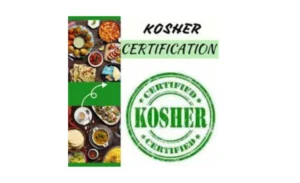Understanding Kosher Certification: What It Means and Why It Matters

Kosher Certification
When shopping for food or dining out, you may have noticed the term “Kosher Certification” on product labels or menus. But what does it really mean, and why is it important? Kosher certification is more than just a label—it’s a symbol of trust, quality, and adherence to a specific set of dietary laws rooted in Jewish tradition. Whether you follow a kosher diet or are simply curious about food standards, this guide will help you understand what kosher certification involves and why it matters in today’s world.
What Does Kosher Certification Mean?
The word “kosher” comes from the Hebrew word kashér, meaning “fit” or “proper.” In food terms, kosher refers to products that comply with Jewish dietary laws outlined in the Torah. These laws, known as kashrut, set clear guidelines on what foods are permitted, how they must be prepared, and which combinations are allowed.
Some key rules include:
-
Certain animals, like pigs and shellfish, are not allowed.
-
Meat and dairy must not be mixed in the same meal.
-
Animals must be slaughtered in a specific, humane way (called shechita).
-
Only fish with fins and scales are considered kosher.
But kosher isn’t only about the ingredients. It also includes how the food is processed, handled, and even packaged.
What Is Kosher Certification?
Kosher Certification is a formal process that confirms a product or establishment meets all the requirements of Jewish dietary law. When a product is kosher-certified, a reliable kosher authority has inspected and approved it. This authority could be a rabbi or a kosher organization with trained inspectors.
After inspection, approved products carry a symbol (called a hechsher), such as “OU,” “OK,” or “KOF-K,” which assures consumers that the item is kosher. These marks are found on packaged foods, drinks, and sometimes even cleaning products or pharmaceuticals.
How Does a Business Get Kosher Certified?
Kosher certification is a detailed process. Here’s how it typically works:
-
Application: A food manufacturer or restaurant contacts a kosher certifying agency.
-
Inspection: A trained rabbi or inspector reviews the ingredients, equipment, and production process.
-
Agreement: The company agrees to follow kosher guidelines, which might include changes in sourcing, equipment cleaning, and staff training.
-
Monitoring: The certifying body conducts regular inspections to ensure ongoing compliance.
-
Labeling: Once approved, the product can display the kosher certification symbol.
The certification process can vary based on the type of food and the agency, but transparency and consistency are always key.
Why Do People Look for Kosher-Certified Products?
There are many reasons why consumers prefer kosher-certified items, and not all of them are religious:
-
Religious Observance: For practicing Jews, eating kosher is a fundamental part of faith and daily life.
-
Food Safety and Quality: Many believe kosher standards promote cleanliness, better quality, and safer production practices.
-
Dietary Preferences: Some people with dietary restrictions (such as vegetarians, vegans, or those avoiding certain meats) use kosher labels as a guide.
-
Allergy Awareness: Kosher labels help identify dairy-free or meat-free products, which can be useful for people with food allergies.
For businesses, Kosher Certification opens the door to a wider market, including Jewish communities and health-conscious consumers worldwide.
Common Misconceptions About Kosher Certification
“Kosher food is blessed by a rabbi.”
Not quite. While a rabbi may inspect and supervise the process, kosher food isn’t “blessed.” It’s the ingredients and preparation that matter.
“Kosher food tastes different.”
Kosher Certification doesn’t change the taste. It ensures that the food complies with kosher law, not that it’s seasoned or prepared a certain way.
“Only Jews eat kosher.”
People of all backgrounds buy kosher products for various reasons, including health, ethics, and personal preference.
Final Thoughts
Kosher certification is a trusted standard that reaches beyond religion. It represents quality, care, and commitment to detailed food practices. For consumers, it offers peace of mind. For businesses, it’s a valuable credential that builds trust and broadens customer reach.
Whether you follow kosher rules or not, understanding the meaning behind that small symbol on your food packaging can deepen your awareness of what you eat and how it’s made. In a world where transparency in food production is more important than ever, kosher certification stands as a mark of integrity and respect for tradition.

